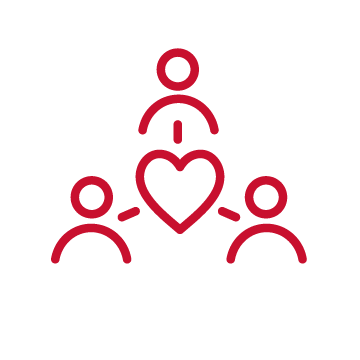Heart Foundation Strategic Plan 2025–2029
Health for Every Heart 2025-2050


Goal 1: Advance heart health equity

Goal 1: Advance heart health equity
Actions and Priorities - 2025-2029
Action 1.1 - Improve heart health and wellbeing for priority populations
Heart Foundation Strategic Plan Priorities - 2025-2029
- We will develop and implement a strategy to address the inequitable heart health outcomes that women experience.
- We will tailor Heart Foundation programs and resources so that they are relevant, accessible, and address the unique challenges faced by culturally and linguistically diverse communities.
- We will examine the barriers to heart health in rural and remote areas and identify gaps in care and support. We will identify the obstacles impacting the heart health of people experiencing socioeconomic disadvantage, and we will develop targeted initiatives to improve access to care, prevention, and support services.
Action 1.2 - Address the disparities in heart health for First Nations peoples
Heart Foundation Strategic Plan Priorities - 2025-2029
- We will partner with First Nations organisations to improve primordial, primary, and secondary prevention of heart disease. We will ensure that prevention strategies are culturally appropriate, community-driven, and aligned with the specific needs of First Nations communities.
- We will deliver targeted initiatives aimed at eliminating Acute Rheumatic Fever (ARF) and Rheumatic Heart Disease (RHD), and we will work with partners to support the RHD Endgame Strategy.
Action 1.3 - Advocate for policies to address social, environmental, and cultural determinants of heart health
Heart Foundation Strategic Plan Priorities - 2025-2029
- We will partner with organisations with aligned interests to advocate for policies that address the social, environmental, and cultural determinants of health. These collaborations will focus on the prevention and management of non-communicable diseases and other chronic conditions, promoting preventive health measures, and advancing health equity. We will work to influence policy and action in environmental health, recognising its critical role in shaping overall wellbeing
Action 1.4 - Ensure our work is continuously informed by consumers and people with lived experience
Heart Foundation Strategic Plan Priorities - 2025-2029
- We will build a network of diverse consumer and community experts, as well as individuals with lived experience. We will work with this network to ensure our initiatives are relevant, impactful, and reflective of their needs and insights.
- We will develop and implement cultural engagement guidelines for working with First Nations communities to help ensure that our interactions are respectful and aligned with cultural protocols. We will ensure the lived experience and community perspectives of First Nations communities informs our work.
Action 1.5 - Ensure equitable access to information and resources
Heart Foundation Strategic Plan Priorities - 2025-2029
- We will review our existing materials with a focus on the needs of diverse audiences. This process will be informed by factors such as health literacy, language, health equity, and the latest evidence base. We will ensure that all our resources are accessible, understandable, and relevant.
- We will identify priority areas for the development and review of resources, targeting populations and topics where the need for tailored information is greatest. As part of this work, we will translate key resources into multiple languages and distribute them through a variety of channels to reach as many people as possible.
- We will promote customised information and resources specifically designed for people living with heart disease.
Previous
Strategic Plan 2025–2029
Next
Goal 2: Create environments and systems that enable healthy behaviours